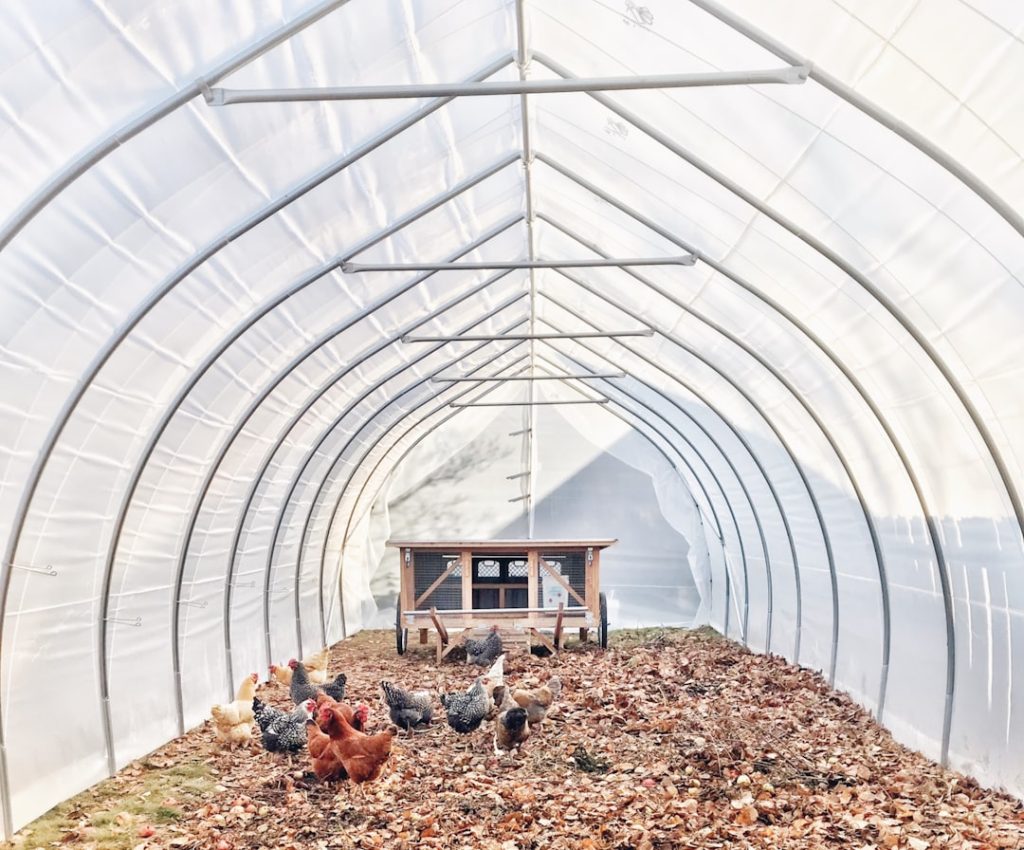Keeping chickens in below zero temperatures presents several health risks for the birds. Chickens are vulnerable to frostbite, hypothermia, and respiratory issues in extreme cold. Frostbite can damage their combs, wattles, and feet, potentially leading to infection.
Hypothermia is a serious concern and can be fatal if not addressed quickly. Cold air can irritate chickens’ respiratory systems, making them more susceptible to infections. Chicken owners must understand these risks and take proactive measures to protect their flocks during severe cold weather.
While chickens are generally hardy, they require proper care and attention to withstand extreme temperatures. Signs of cold stress in chickens include lethargy, decreased egg production, and pale combs and wattles. Vigilant monitoring of flock well-being is essential for chicken owners to ensure their birds remain healthy and safe throughout the winter months.
Table of Contents
- 1 Providing adequate shelter and insulation for chickens in cold weather
- 2 Ensuring access to fresh water for chickens in freezing temperatures
- 3 Feeding and nutrition considerations for chickens in cold weather
- 4 Protecting chickens from frostbite and other cold-related health issues
- 5 Monitoring and managing the flock’s behavior and well-being in below zero conditions
- 6 Tips for keeping chickens healthy and happy during the winter months
- 7 FAQs
- 7.1 What are some important considerations for keeping chickens in below zero temperatures?
- 7.2 What type of shelter is best for chickens in below zero temperatures?
- 7.3 How can I ensure my chickens have access to unfrozen water in below zero temperatures?
- 7.4 What extra measures can I take to keep my chickens warm in below zero temperatures?
- 7.5 What are some common health concerns for chickens in below zero temperatures?
Key Takeaways
- Chickens can be at risk of frostbite, hypothermia, and other health issues in below zero temperatures.
- Adequate shelter with insulation, such as straw or hay, can help chickens stay warm in cold weather.
- It’s important to regularly check and replace frozen water to ensure chickens have access to fresh water.
- Adjusting the chickens’ diet to include more high-energy foods can help them stay warm in cold weather.
- Regularly inspect chickens for signs of frostbite and other cold-related health issues, and provide necessary care.
Providing adequate shelter and insulation for chickens in cold weather
Providing Adequate Shelter
One of the most important aspects of caring for chickens in below zero temperatures is providing them with adequate shelter and insulation. A well-constructed coop is essential for protecting chickens from the harsh winter weather. The coop should be draft-free, with proper ventilation to prevent moisture buildup, which can lead to respiratory issues.
Insulating the Coop
Insulating the coop with materials such as straw, hay, or foam board can help retain heat and keep the chickens warm. Additionally, providing a thick layer of bedding on the coop floor can help insulate against the cold ground.
Providing a Secure Outdoor Run
In addition to a well-insulated coop, it is important to provide a secure outdoor run for the chickens to get fresh air and exercise while still being protected from the elements. The run should be covered to prevent snow and ice buildup, and windbreaks can be added to provide extra protection from cold winds. By ensuring that the chickens have a warm and secure shelter, chicken owners can help mitigate the risks of keeping chickens in below zero temperatures.
Ensuring access to fresh water for chickens in freezing temperatures
Access to fresh water is crucial for chickens’ health and well-being, especially in freezing temperatures. However, keeping water from freezing can be a challenge in cold weather. There are several strategies that chicken owners can use to ensure that their flock has access to water throughout the winter months.
One option is to use heated waterers, which are designed to prevent water from freezing. These can be plugged in and placed in the coop or run to provide a constant supply of unfrozen water for the chickens. Another option is to manually refill waterers multiple times a day with warm water to prevent freezing.
Additionally, insulating waterers with foam or using black containers that absorb sunlight can help prevent freezing. It is important to regularly check waterers throughout the day to ensure that the chickens always have access to water. Dehydration can be a serious issue for chickens in cold weather, so it is essential for chicken owners to take proactive measures to ensure that their flock stays hydrated.
Feeding and nutrition considerations for chickens in cold weather
Feeding and nutrition play a crucial role in keeping chickens healthy during cold weather. Chickens require more energy to stay warm in below zero temperatures, so it is important to adjust their diet accordingly. Providing a high-quality layer feed with increased protein and fat content can help chickens maintain their body temperature and energy levels.
Additionally, offering supplemental treats such as scratch grains, mealworms, or black oil sunflower seeds can provide extra calories to help keep the chickens warm. It is also important to ensure that the chickens have access to fresh forage if possible, as this can provide additional nutrients and stimulation for the flock. However, it is essential to monitor their food intake and avoid overfeeding, as obesity can make chickens more susceptible to cold stress.
By paying attention to their diet and nutritional needs, chicken owners can help ensure that their flock stays healthy and strong throughout the winter months.
Frostbite is a common concern for chickens in below zero temperatures, particularly on their combs, wattles, and feet. To protect against frostbite, it is important to regularly inspect the chickens for any signs of frostbite and take proactive measures to prevent it. Applying petroleum jelly or other protective balms to their combs and wattles can help insulate them from the cold and reduce the risk of frostbite.
Additionally, providing roosts with wide perches can help prevent frostbite on their feet by allowing them to tuck their toes under their bodies and stay warm. In addition to frostbite, cold weather can exacerbate respiratory issues in chickens. It is important to keep the coop clean and well-ventilated to prevent moisture buildup, which can contribute to respiratory infections.
Providing supplemental heat in the coop can also help keep the chickens warm and reduce the risk of respiratory issues. By taking proactive measures to protect against frostbite and other cold-related health issues, chicken owners can help ensure that their flock stays healthy and comfortable during the winter months.
Monitoring and managing the flock’s behavior and well-being in below zero conditions

Monitoring Behavior and Well-being
Monitoring the flock’s behavior and well-being is crucial for caring for chickens in below zero temperatures. Regular observation of the chickens is necessary to detect any signs of cold stress or health issues, such as lethargy, decreased egg production, or pale combs and wattles. Moreover, paying attention to their behavior, such as huddling together for warmth or seeking shelter from the wind, provides valuable insight into their comfort level.
Environmental Management
In addition to monitoring their behavior, it is essential to manage their environment to ensure that they stay warm and comfortable. This includes providing adequate shelter and insulation, ensuring access to fresh water, adjusting their diet as needed, and protecting against frostbite and other cold-related health issues.
Ensuring Health and Happiness
By staying vigilant and proactive in monitoring and managing their flock’s behavior and well-being, chicken owners can help ensure that their chickens stay healthy and happy during below zero conditions.
Tips for keeping chickens healthy and happy during the winter months
In addition to the specific considerations for caring for chickens in below zero temperatures, there are several general tips for keeping chickens healthy and happy during the winter months. Providing ample bedding in the coop can help insulate against the cold ground and provide a comfortable resting area for the chickens. Additionally, offering entertainment such as hanging treats or toys in the coop can provide mental stimulation for the flock during long periods of confinement.
It is also important to maintain a consistent routine for feeding, cleaning, and caring for the chickens throughout the winter months. Consistency can help reduce stress for the flock and provide a sense of security during challenging weather conditions. Additionally, providing opportunities for exercise and fresh air in a protected outdoor run can help keep the chickens active and engaged during the winter months.
Finally, it is important for chicken owners to stay informed about best practices for caring for chickens in cold weather and be prepared to adjust their care routine as needed based on their flock’s specific needs. By staying proactive and attentive to their flock’s well-being, chicken owners can help ensure that their chickens stay healthy and happy throughout the winter months.
If you’re considering keeping chickens in below zero temperatures, you may also want to consider the size of the coop you’ll need for your chickens. Poultry Wizard has a helpful article on how big a coop needs to be for a chicken, which can provide valuable information for creating a comfortable and safe environment for your feathered friends in cold weather.
FAQs
What are some important considerations for keeping chickens in below zero temperatures?
Some important considerations for keeping chickens in below zero temperatures include providing adequate shelter, ensuring access to unfrozen water, and providing extra insulation and bedding in the coop.
What type of shelter is best for chickens in below zero temperatures?
A well-insulated and draft-free coop is best for chickens in below zero temperatures. It should also have good ventilation to prevent moisture buildup.
How can I ensure my chickens have access to unfrozen water in below zero temperatures?
To ensure your chickens have access to unfrozen water in below zero temperatures, you can use heated waterers or manually change the water multiple times a day to prevent it from freezing.
What extra measures can I take to keep my chickens warm in below zero temperatures?
Extra measures to keep chickens warm in below zero temperatures include adding extra insulation to the coop, providing plenty of bedding, and using heat lamps or heated pads if necessary.
What are some common health concerns for chickens in below zero temperatures?
Common health concerns for chickens in below zero temperatures include frostbite, respiratory issues from poor ventilation, and dehydration from lack of unfrozen water. Regular health checks and monitoring are important.
Meet Walter, the feathered-friend fanatic of Florida! Nestled in the sunshine state, Walter struts through life with his feathered companions, clucking his way to happiness. With a coop that’s fancier than a five-star hotel, he’s the Don Juan of the chicken world. When he’s not teaching his hens to do the cha-cha, you’ll find him in a heated debate with his prized rooster, Sir Clucks-a-Lot. Walter’s poultry passion is no yolk; he’s the sunny-side-up guy you never knew you needed in your flock of friends!







